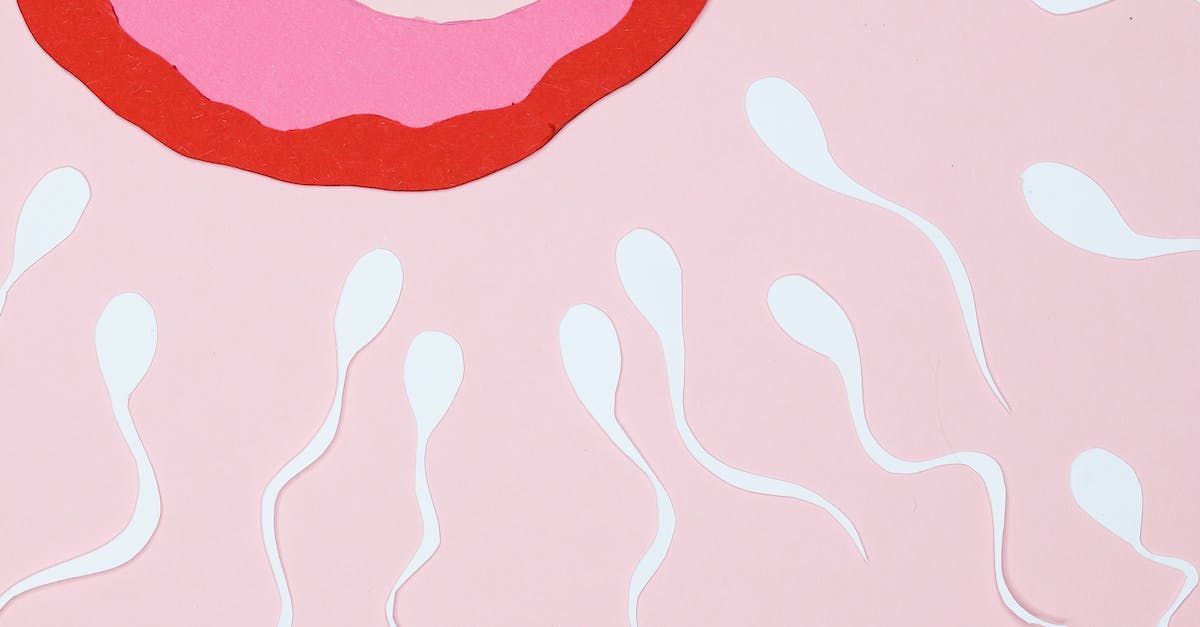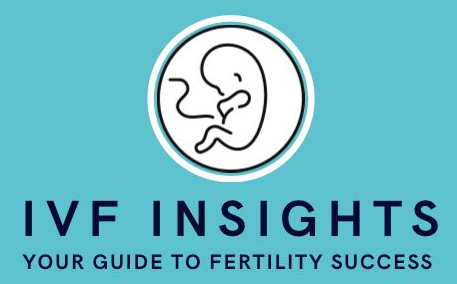
Signs of infertility in men: Recognize the Red Flags
When it comes to the topic of male infertility, most discussions tend to revolve around the clinical aspects, medical evaluations, and treatments. However, there exists a less explored dimension of this complex issue – the subtle and often overlooked physical signs that could potentially signal an underlying fertility problem in men.
In this enlightening exploration, we embark on a journey to uncover those signs that don't readily meet the eye, but can hold profound significance in the context of male infertility. While the conventional markers are undoubtedly essential, it is crucial to broaden our perspective and delve deeper into the intricacies of the human body and its responses.
In the following sections, we will venture beyond the obvious and unveil some of these unusual physical signs that, when recognized and understood, could offer invaluable insights into a man's reproductive health. Understanding these signals is not only pivotal for early diagnosis but can also play a significant role in the emotional and psychological well-being of individuals and couples navigating the challenging path of infertility.
So, let us embark on this enlightening journey, where we shed light on the lesser-known indicators of male infertility, ultimately aiming to empower individuals with knowledge and awareness on a topic that is often shrouded in secrecy.

Hidden Hurdles: Recognizing Male Infertility Red Flags You Shouldn't Ignore
In the pursuit of building a family, understanding the telltale signs of infertility is paramount. While women have historically taken the spotlight in discussions surrounding fertility, it's essential to remember that male infertility is a real and prevalent issue, affecting a significant portion of couples worldwide. It's a subject that, despite its significance, often lurks in the shadows, awaiting discovery.
In this section, we shine a light on those discreet yet critical indicators that every man, and those who care about them, should be vigilant about. These are the red flags that, if ignored, could prolong the journey toward parenthood and impact the emotional well-being of both partners.
Physical Symptoms: Unveiling the Subtle Signs of Male Infertility
In the pursuit of parenthood, understanding the body's signals is key. In this section, we explore the often subtle physical symptoms that can offer crucial insights into male infertility.
These signs, though easily overlooked, can hold the keys to early diagnosis and effective intervention, bringing hope to those navigating the challenging path of fertility.
Erectile Dysfunction Beyond Performance Issues: Many associate erectile dysfunction primarily with sexual performance, but it can also be an early warning sign of male infertility. Frequent difficulties in achieving or maintaining an erection may indicate an underlying physiological problem, such as impaired blood flow or hormonal imbalances. These issues can hinder successful conception.
Pain or Discomfort in the Testicles: Persistent pain, discomfort, or a dull ache in the testicles should not be dismissed. It could be a sign of various conditions, including varicoceles (enlarged veins in the testicles) or infections, which can negatively impact sperm production and quality.
Changes in Urinary Habits: Alterations in urination patterns, such as frequent urination, difficulty urinating, or blood in the urine, may point to underlying health issues, including potential blockages in the reproductive tract. These issues can impede the passage of sperm during ejaculation.
Unexplained Weight Gain or Loss: Sudden and unexplained changes in body weight can disrupt the delicate hormonal balance necessary for optimal sperm production. Obesity, for instance, can lead to elevated estrogen levels, which can negatively affect fertility.
Breast Tissue Enlargement (Gynecomastia): The development of breast tissue in men, known as gynecomastia, can be a manifestation of hormonal imbalances. Imbalances in hormones like testosterone can significantly impact fertility, making it essential to investigate the root cause.
Frequent Illnesses or Infections: Frequent illnesses or infections, particularly those involving the reproductive or urinary systems, may be indicative of underlying issues affecting fertility. Infections can damage the reproductive organs or disrupt sperm production.
Understanding and recognizing these subtle red flags is the first step toward proactive management of male infertility. While they may not guarantee infertility, they warrant attention, evaluation, and, if necessary, consultation with a healthcare professional. By acknowledging these hidden hurdles, individuals and couples can take a proactive role in their reproductive health journey, potentially expediting their path to parenthood and reducing the emotional toll that often accompanies infertility.
You Might Also Like: Signs of Infertility in Women
Behavioral Clues: How Certain Habits and Actions May Reveal Male Infertility
While physical symptoms provide valuable insights into male infertility, it's equally important to examine behavioral clues that could be indicative of underlying fertility challenges. In some cases, these behaviors may manifest as subtle changes in routine or habits, often dismissed as unrelated to reproductive health. However, understanding the potential connections between behavior and fertility is essential for early detection and intervention.

Alterations in Sexual Habits: Changes in sexual habits, such as a decreased frequency of sexual activity or a sudden aversion to intimacy, can raise red flags. These behavioral shifts may stem from physical discomfort, performance anxiety, or a subconscious response to underlying fertility concerns.
Excessive Heat Exposure: Consistent exposure to excessive heat, whether through hot tubs, saunas, or extended periods of sitting, can increase scrotal temperature. Elevated scrotal temperature is known to harm sperm production and quality. Men who regularly engage in activities with prolonged heat exposure should be aware of this potential risk factor.
Tobacco and Substance Use: Smoking and substance abuse can wreak havoc on fertility. Both nicotine and certain recreational drugs can impair sperm production and function. Behavioral cues related to these habits may include increased tobacco consumption or substance use.
Stress and Mental Health: The emotional toll of infertility is undeniable. Men grappling with fertility issues may exhibit signs of increased stress, anxiety, or depression. These mental health challenges can, in turn, contribute to hormonal imbalances that further exacerbate fertility problems.
Diet and Nutrition: Dietary choices can significantly impact overall health, including reproductive health. A diet low in essential nutrients and antioxidants may hinder sperm quality. Behavioral indicators in this realm may include a preference for processed foods over nutritious options or excessive alcohol consumption.
Exercise Extremes: While regular physical activity is generally beneficial, extreme exercise routines, such as marathon running or intense weightlifting, can affect hormonal balance and potentially reduce sperm production. Behavioral cues may involve an obsession with fitness or extreme exercise regimens.
Medication and Supplements:
Some medications and supplements can interfere with fertility. Men who abruptly begin or stop taking certain medications or supplements may unknowingly disrupt their reproductive health.

Understanding these behavioral cues is essential not only for early detection but also for informed decision-making. Men who recognize these signs can take proactive steps to mitigate potential risks and seek timely medical advice. Additionally, couples can engage in open and supportive communication about these concerns, which can alleviate the emotional strain often associated with fertility issues.
In the journey toward parenthood, recognizing these behavioral clues can be a pivotal factor in achieving reproductive success while safeguarding one's overall well-being.
Bearing the Weight of Hope: Understanding the Emotional Toll of Male Infertility
When we talk about infertility, we often focus on the physiological aspects, the medical evaluations, and the treatments. However, there is an equally significant, yet often unspoken, dimension of this journey – the emotional toll it takes on those who experience it. For men grappling with infertility, the journey can be a rollercoaster of emotions, ranging from hope to despair, and from frustration to resilience.
In this section, we delve deep into the emotional landscape of male infertility, shedding light on the feelings, challenges, and coping mechanisms that men may encounter along the way. It's a journey marked by uncertainty, resilience, and a profound sense of hope – hope for the day when fatherhood becomes a reality.
The Weight of Expectations: Society often places immense expectations on men to be fathers, which can intensify the emotional burden when fertility issues arise. The pressure to fulfill the role of provider and parent can contribute to feelings of inadequacy and self-doubt.
The Stigma of Silence: Male infertility is frequently shrouded in silence and stigma. Men may feel reluctant to discuss their struggles openly, fearing judgment or a loss of masculinity. This silence can isolate them and exacerbate feelings of loneliness and shame.
The Rollercoaster of Hope and Disappointment: The journey of infertility often involves a series of hopeful moments followed by heartbreaking disappointments. Men experience the highs of positive test results and the lows of negative ones, each test representing a rollercoaster of emotions.
The Impact on Relationships: Infertility can strain even the strongest relationships. Men may grapple with feelings of guilt for not being able to fulfill their partner's desire for children. Open communication and support within the relationship are essential but can be challenging to maintain under such pressure.
Coping Mechanisms: Men facing infertility develop unique coping strategies to navigate the emotional terrain. From seeking support groups to exploring therapeutic outlets, these mechanisms play a critical role in managing the emotional toll.
Understanding the emotional aspects of male infertility is crucial, not only for men themselves but also for their partners and loved ones. It is a reminder that infertility is not just a medical issue but a deeply personal and emotional journey that demands acknowledgment and support.



